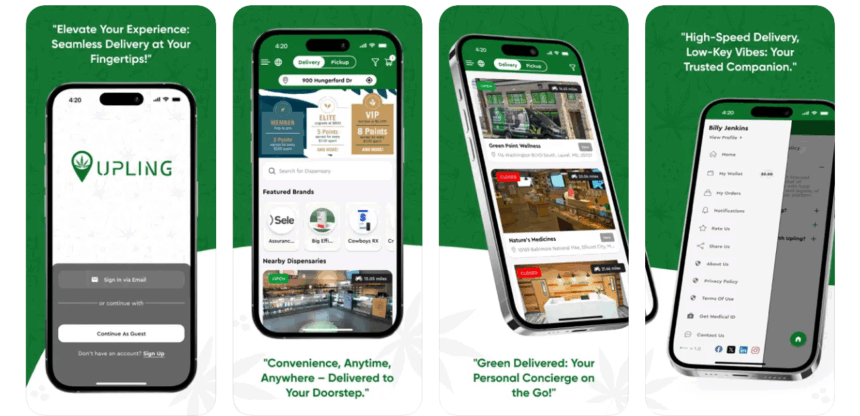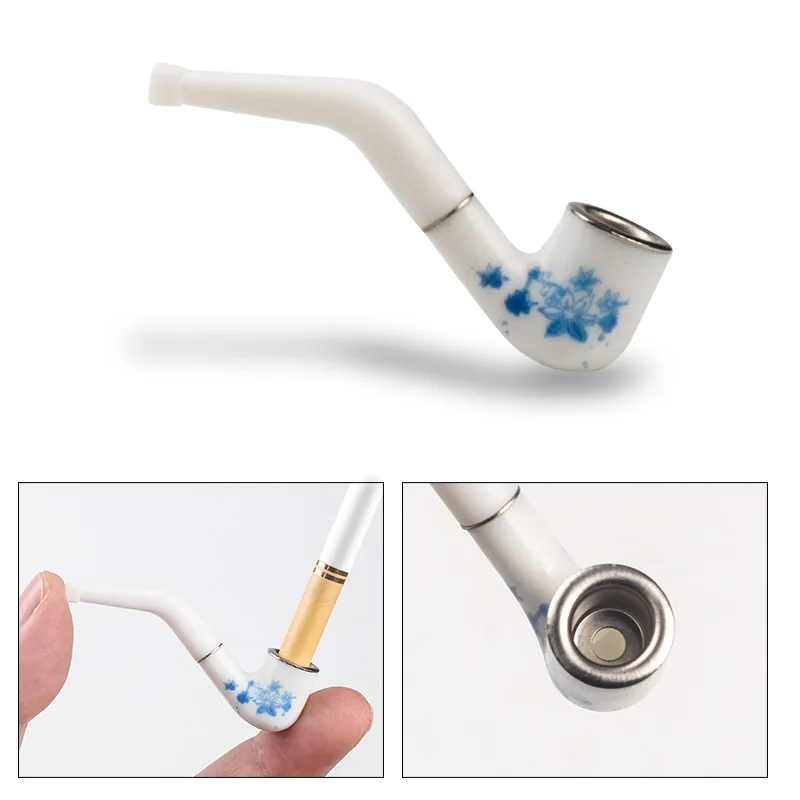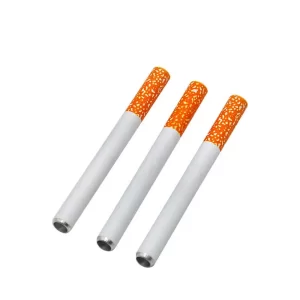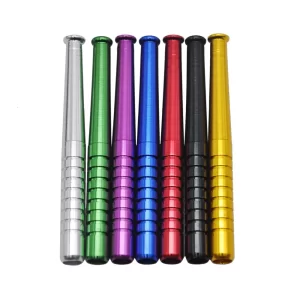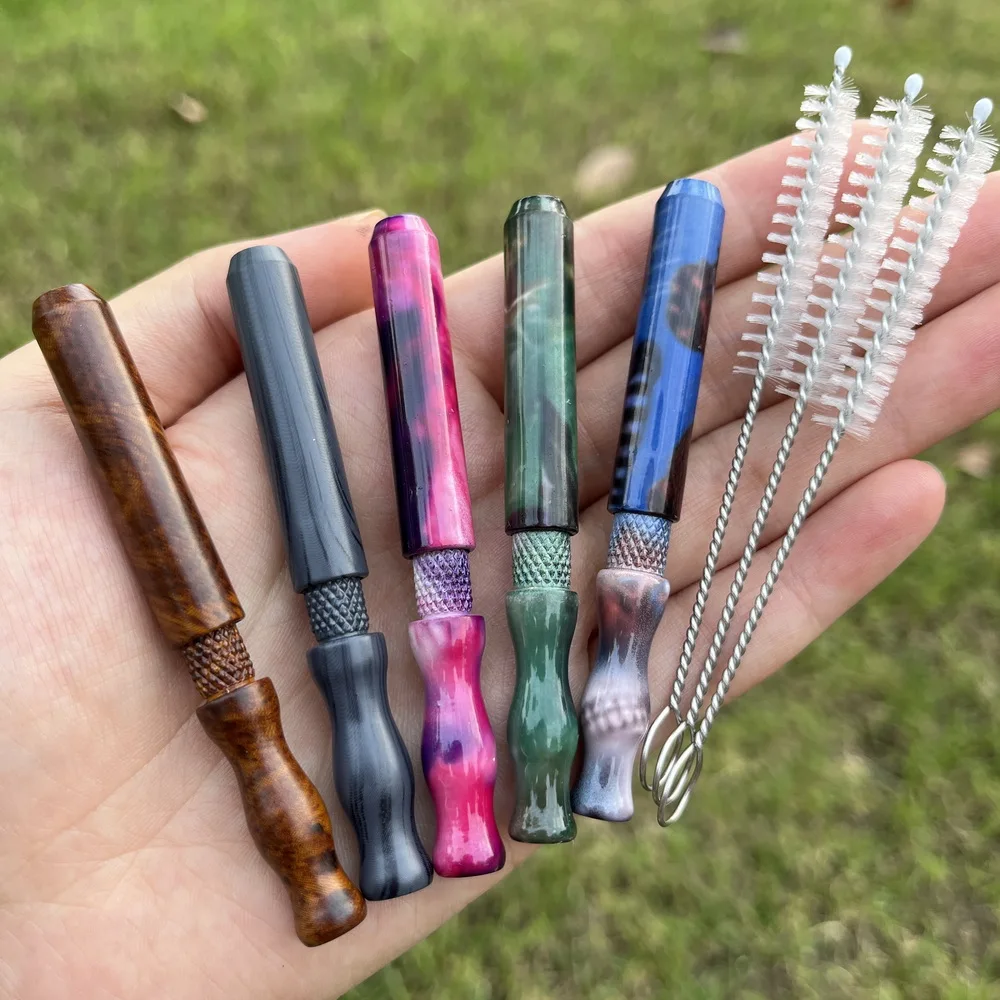Colin Fraser’s life has been punctuated by moments that could have ended him. He was shot eight times. He was wrongly incarcerated on cannabis-related charges. He came home with scars, a record, and the weight of proving himself in a society that rarely forgives.
What he did next, however, changed everything. He was looking to build something larger than himself. Caring for his mother during her cancer treatment, Fraser witnessed the gaps in medical cannabis access firsthand: how older patients were ignored in outreach, how little guidance existed beyond trial and error, and how isolated people felt navigating medicine without support.
From that experience grew a constellation of initiatives that today define his work. Fraser is the founder of Upling, the first Black-owned cannabis delivery app in the U.S.; the creator of Bud-E, an AI-powered genetics tool that brings precision medicine into cannabis care; and the architect of Grass to Grace, an entrepreneurship program helping justice-impacted people turn criminal records into legacies.
Taken together, these initiatives may sound like three separate projects, but for Fraser, they are all branches of the same tree: equity. Whether it’s economic equity for returning citizens or health equity for patients struggling to navigate cannabis treatment, his work is about breaking down barriers that have historically excluded Black and Brown communities.

Lessons from a wounded system
Fraser’s path carries the imprint of every barrier he’s faced. “My journey into cannabis entrepreneurship didn’t start in a boardroom; it started in a courtroom,” he says. Being incarcerated gave him an unfiltered view of prohibition’s cruelty: communities dismantled, opportunities stolen, survival tied to resilience.
But there’s another lesson Fraser carried out of prison: the importance of solidarity. “I saw too many Black and Brown entrepreneurs competing for crumbs instead of building together,” he recalls. That realization pushed him toward collaboration, not competition.
The ecosystem he’s building today reflects that lesson. It’s structured around shared ownership and pathways for people who look like him—people written off by the same laws that now fuel billion-dollar industries. For Fraser, equity isn’t a talking point; it’s the organizing principle. “We’re not asking for a seat at someone else’s table. We’re building our own,” he explains.
Grass to Grace: From time served to businesses built
That philosophy comes to life through Grass to Grace, Fraser’s reentry entrepreneurship cohort. Launched with WorkSource Montgomery, the program focuses on turning justice-impacted individuals into business owners.
So why entrepreneurship instead of pushing for job placement? Fraser doesn’t hesitate: “When you start a business, there isn’t a checkbox that asks if you’ve ever been locked up. Customers don’t ask about your past. They care if you can deliver.”
The cohort is designed to shift identity itself. Success, Fraser argues, doesn’t just look like participants walking away with viable business plans and proof of concept; he likes the idea of reshaping how families and communities see them. “When a participant’s child sees their parent as a business owner instead of just a formerly incarcerated person, that changes everything,” he says. “That’s generational impact.”
Capital, of course, is a barrier. But Fraser points to something deeper: trust. “Banks don’t trust you. Investors don’t trust you. Sometimes, not even your own community trusts you,” he says. Building businesses that serve, not just sell, is his way of restoring that trust. “If your own community doesn’t see your value, it’s hard to grow. But when you root your business in impact, it becomes a legacy.”
Redefining access through cannabis care at your doorstep
If Grass to Grace is Fraser’s answer to economic equity, Upling is his answer to healthcare access. On the surface, Upling is a high-speed cannabis delivery app, but its real mission is to remove the barriers that keep patients—especially the most vulnerable—from getting consistent, reliable care.
The idea took root when Fraser came home to care for his mother during her cancer treatment. He witnessed how medical cannabis could transform her quality of life, but he also saw how difficult it was for patients like her to access the right products and support.
“One of the biggest gaps I noticed was how overlooked older medical users were,” he recalls. “Patients 60 and above weren’t being marketed to, educated, or even acknowledged in most cannabis outreach. The industry seemed to focus on the ‘cool factor’ of cannabis, while seniors—the ones who often need it most—were left to figure things out on their own.”

Outside the dispensary, information was sparse and intimidating. If you weren’t tech-savvy, plugged into a cannabis community, or had someone to guide you, your journey was a patchwork of trial and error. For Fraser, that wasn’t good enough. Upling became his way to streamline the entire process: delivery that is fast and compliant, paired with clear information and a patient-first ethos.
Equity runs through the platform’s DNA. Upling is the first Black-owned delivery-focused cannabis app, and Fraser built it not just to serve patients, but to model a future where communities harmed by prohibition are at the forefront of the legal industry. “Upling isn’t just a delivery app; it’s a platform to create ownership opportunities for people like me,” Fraser says.
When AI meets cannabis care
Now, if Upling reimagines access, Bud-E reimagines what happens after access. Launched inside the Upling platform, Bud-E is an AI-powered cannabis genetics tool designed to move patients beyond surface attempts.
For Fraser, the inspiration was personal. “Bud-E was born from watching my mother struggle and realizing that most medical cannabis patients are essentially conducting experiments on themselves with no scientific guidance,” he says. “We’re asking sick people to be their own researchers, pharmacists, and doctors. That’s not healthcare. That’s abandonment.”
Bud-E flips that model. By analyzing patient-reported outcomes, medical history, and optional genetic data, the tool generates personalized cannabis recommendations, learning from thousands of cases, not just one doctor’s experience. Fraser calls it “a cannabis-knowledgeable doctor available 24/7.”
“Right now, we’re in the dark ages—patients trying random products based on marketing claims and budtender opinions,” Fraser says. “AI changes that completely.”
The impact is best understood through examples. Imagine a 65-year-old woman with arthritis and insomnia. Instead of relying on whatever strain is trending that week, Bud-E analyzes her conditions, medications, and past experiences. It might recommend a CBD:THC ratio for daytime pain that won’t interfere with blood pressure meds, and a separate nighttime formulation that eases both pain and sleep without morning grogginess. Bud-E then tracks her feedback, adjusts in real time, and contributes her anonymized data to improve care for others.
Or picture a veteran with PTSD opening the Upling app. Within minutes, Bud-E translates their symptoms into safe, targeted product suggestions grounded in patient data, and not guesswork. That’s the difference Fraser sees between using cannabis and healing with it.
The vision extends far beyond today’s beta. Fraser imagines a near future where AI can predict with 80–90% accuracy how a specific product will affect a specific patient, integrate with wearables to adjust dosage in real time, and democratize cannabis expertise. “A patient in rural Mississippi should have access to the same level of sophisticated cannabis knowledge as someone in Beverly Hills,” he says. “That’s equity through technology.”
Set for full release in October 2025, Bud-E is Fraser’s attempt to give patients what prohibition and stigma have long denied them: clarity, safety, and trust.
The banking roadblock
Yet, even as Fraser builds out programs and platforms, he is clear-eyed about one obstacle that could undermine all of it: the lack of access to banking.
“That philosophy also comes with a challenge to the broader cannabis industry,” he says. “Cannabis legalization represents society’s acknowledgment that it got something fundamentally wrong about criminalization. The industry has a moral debt to the communities most harmed by prohibition. This isn’t charity; it’s justice.”
But justice, Fraser insists, can’t be achieved while the industry remains locked out of the financial system. Cannabis is legal in dozens of states, but under federal prohibition, most banks still refuse to work with cannabis companies. The result is an industry forced to operate mostly in cash—dangerous for dispensaries, limiting for entrepreneurs, and burdensome for patients.
“If I could change one policy tomorrow to accelerate equity, it would be banking reform,” Fraser says. Without access to loans, credit, or insurance, justice-impacted entrepreneurs remain locked out of scaling their businesses. Patients, meanwhile, are left paying cash for medicine when many are already struggling under medical bills.
Fraser sees banking reform as the linchpin for true cannabis equity. “Banking reform would do more for cannabis equity than any social equity program ever could,” he argues. “It would level the playing field and let the best businesses win, regardless of the founder’s background.”
When banks open their doors to cannabis businesses, it sends a signal that this is a real industry, deserving of real respect. For entrepreneurs and patients alike, that shift could mean the difference between surviving in the shadows and thriving in the open.
From that perspective, Fraser also brings his equity-first lens into policy circles. He was appointed by Maryland Governor Wes Moore to the Police Training and Standards Committee, chairs the Howard County Cannabis Advisory Board, and serves on multiple reentry and cannabis business associations. In 2024, the Baltimore Business Journal named him to its prestigious 40 Under 40 list—a testament to his growing influence at the intersection of equity, healthcare, and cannabis policy.
Breaking barriers, building futures
Grass to Grace, Upling, and Bud-E may seem like very different projects: one focused on reentry, another on delivery, and a third on precision medicine. But for Fraser, they are all part of the same mission: breaking down barriers between people and the resources they deserve.
“From Grass to Grace gives people a second chance at life and ownership. Bud-E gives patients a clearer path to better health,” he says. “In both cases, I’m breaking down barriers between people and the opportunities they deserve.”
That philosophy comes from lived experience. Having been shot, incarcerated, and forced to start again, Fraser recognizes the invisible walls others may not see. For him, equity isn’t just a popular word, but the connective tissue between every project he launches.
We can be talking about a formerly incarcerated father being seen as a business owner, a cancer patient receiving clear guidance instead of confusion, or a community having a voice in an industry once used to criminalize them. No matter the case, Fraser sees each as part of the same fight: turning exclusion into empowerment.
From grass to grace, from prison to precision
Fraser’s story could be framed as just another cool, inspiring cannabis entrepreneur tale. But it’s way more than that. Colin is rewriting the rules of who gets to heal, who gets to own, and who gets to shape the future of an industry that once criminalized them.
“I’ve been the person starting from zero with a record, a dream, and a mountain of obstacles,” Fraser says. “My story tells people it’s possible to go from grass to grace.”
With Grass to Grace empowering entrepreneurs, Upling redefining access, and Bud-E pushing cannabis care into the era of precision medicine, Fraser is proving that cannabis can be (and is) more than a product. It’s a transforming path to dignity, equity, and healing for those long shut out.



